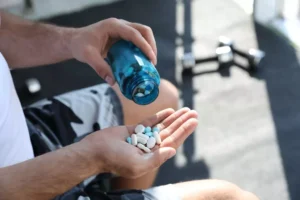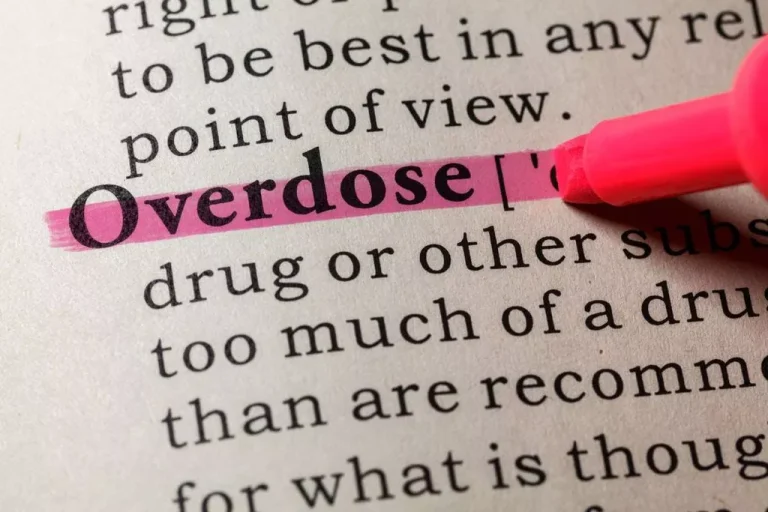
To elicit a response from the cell-mediated arm of the adaptive immunity, antigens need to be presented to the CD4+ and CD8+ T-cells. Studies in rodents found that chronic alcohol feeding can impair presentation of protein antigens in the spleen (Mikszta et al. 1995). Acute alcohol intoxication impairs the antigen-presenting ability of these cells (Mandrekar et al. 2004). In addition, alcohol markedly affects the differentiation of dendritic cells in blood and tissues (Ness et al. 2008). The alcohol-induced defects in dendritic cell function include reduced levels of CD80 and CD86 on the cells’ surface (which are necessary to induce activation of T-cells) as well as reduced production of IL-12, which is critical for stimulating naïve CD4+ T-cells to become IFN-γ–producing Th1 cells.
ZNF26-Associated Genes as Prognostic Signatures in Colorectal Cancer with Broad Therapeutic Implications

These microorganisms help your gut function normally by processing food into nutrients. Alcohol also disrupts how these microorganisms communicate with each other, which can change how long it takes to digest food and how effective your gut is at absorbing all available nutrients. If you’d like to reduce or quit drinking, there are innovative new options for support. Online programs like Ria Health offer customized care from home, without disrupting your daily life. Ria provides access to anti-craving medications, weekly coaching meetings, expert medical advice, and more—all from an app on your phone.
- The body doesn’t have a way to store alcohol like it does with carbohydrates and fats, so it has to immediately send it to the liver, where it’s metabolized.
- Multiple mechanisms have been identified underlying the immunosuppressive effects of alcohol.
- Supplements like glutathione, for example, may help alleviate symptoms of autoimmune disease.
- Chronic alcohol abuse leads to increased susceptibility to bacterial and viral infections, most notably a 3 to 7-fold increase in susceptibility (Schmidt and De Lint 1972) and severity (Saitz, Ghali et al. 1997) of bacterial pneumonia compared with control subjects.
What Can I Do to Minimize Damage to My Immune System?
- For example, one study found that women who consumed 330 mL of beer for 30 days exhibited a significant increase in leukocytes, mature CD3+ T-cells, neutrophils, and basophils.
- Future studies should aim to include a more homogeneous patient population or employ stratified analyses to better account for these variables.
- In the lungs, for example, alcohol damages the immune cells and fine hairs that have the important job of clearing pathogens out of our airway.
- Women are less vulnerable to infections because they have higher levels of estrogen during their pre-menopausal years, which helps the body boost the immune system and fight disease.
- Someone who drinks a large number of alcoholic beverages on one occasion or drinks frequently may experience hangover symptoms such as nausea, headache, and dehydration.
- For instance, IL-1 induces HPA axis activation and glucocorticoid release that suppresses the immune system (Sapolsky, Rivier et al. 1987).
Even if you follow the perfect autoimmune protocol, a study could come out next year saying red wine and red meat are the best for your health. Some people living with these chronic conditions do everything they can to stave off inflammation and brain fog. They eat organic foods, stand on their heads, and eschew sugar in favor of vegetables. Research has conflicting findings on whether drinking in moderation has health benefits. If you are dependent on or addicted to alcohol and experience withdrawal symptoms when you reduce how much you drink, you may need to complete an addiction treatment program before a planned or non-urgent surgery.

7 Immune infiltration analysis
Some alcoholic beverages contain components that combat ethanol’s damaging effects. Alcoholic drinks containing antioxidants may cause less damage than other drinks because they help protect against some of the free radicals in ethanol. While any alcoholic drink can have negative effects on the body, beers or wines that contain vitamins, antioxidants does alcohol weaken your immune system and polyphenols may cause less damage to the immune system than heavy liquors. The intestine contains microorganisms that help maintain a healthy immune system, reduce the risk of infection and help the gastrointestinal tract function normally. Alcohol intake kills this bacteria, hindering the body’s ability to clear pathogens.
- BEAN1 expression levels were compared among different cell types, including tumor cells, stromal cells, and various immune cells.
- While the immune system protects the brain, some immune responses have negative effects after a stroke.
- Their main role is to capture, ingest, and process antigens in order to present them on their surface to cells of the adaptive immune response (i.e., to the T-lymphocytes).
- As reviewed by Szabo and Saha, alcohol’s combined effects on both innate and adaptive immunity significantly weaken host defenses, predisposing chronic drinkers to a wide range of health problems, including infections and systemic inflammation.
- First, large studies conducted across multiple centers with cohorts are necessary to validate the generalizability of our findings and to provide more comprehensive insights into BEAN1's role in READ.

It can also bind to other proteins to form adducts, such as malondialdehyde (MDA) and MDA-acetaldehyde (MAA), which play a key role in the development of liver injury and stimulate antibody responses that further promote liver inflammation and fibrosis (Tuma and Casey 2003). In addition, oxidation of ethanol by CYP2E1 leads to the formation of reactive oxygen species (ROS). Elevated levels of ROS cause oxidative stress which has been shown to play a role in several harmful processes including cancer development, atherosclerosis, https://ecosoberhouse.com/ diabetes, and inflammation (Tuma and Casey 2003). Several studies have also shown that the lungs are highly vulnerable to the effects of alcohol. For example, alcohol can reduce the ability of respiratory epithelium cells to remove mucous from the lungs, which can directly damage lung tissue and weaken the proper functioning of the lungs over time. Although this chronic weakening of lung function may not cause any immediate symptoms, these effects can manifest when a severe respiratory infection occurs.

Alcohol and the Adaptive Immune Response
- Several lines of evidence show that the number and function of B-cells are reduced by chronic alcohol.
- Prospective studies with standardized data collection methods are needed to validate our findings and mitigate these methodological concerns.
- Firstly, the sample size of our READ patient cohort was relatively small, which may limit the generalizability of our results.
- Similarly, more work is needed to determine whether alcohol inhibits specific aspects of B-cell differentiation, such as immunoglobulin class switching and cell survival.